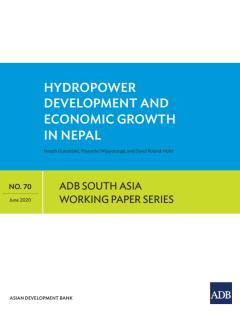
Hydropower development is a controversial topic as it potentially has significant environmental and social impacts. However, hydropower has received favourable consideration recently due to its potential to mitigate climate change. This study adds to the ongoing debate on hydropower development, taking on Nepal as a case study. It uses a computable general equilibrium model to examine the macroeconomic impacts of expanding Nepal’s hydropower potential. In order to have a better understanding of the macroeconomic implications of large-scale hydropower development, the study takes into account exogenous oil price risks and external market opportunities to evaluate Nepal’s hydroelectric development options over two decades.
Results show that hydropower development will significantly increase economic growth in Nepal. In the long run, hydropower generation expansion increases domestic incomes, lowers real domestic energy prices, significantly alleviates poverty, and provides insurance against oil price increases. Moreover, this report explores Nepal's potential to significantly contribute in providing environmental services to the South Asian region by delivering clean, renewable energy while mitigating climate change.
